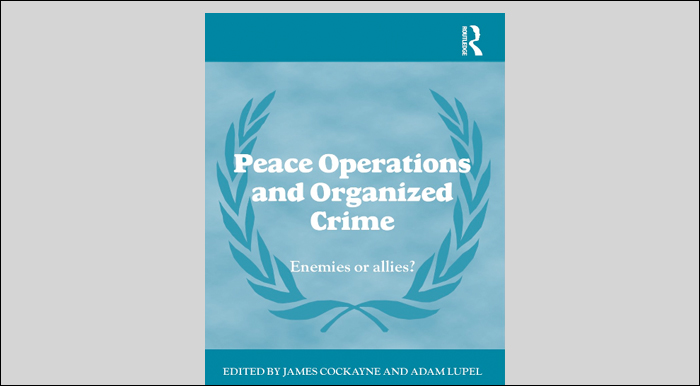 Peace operations are increasingly on the front line in the international community’s fight against organized crime. This book explores how, in some cases, peace operations and organized crime are clear enemies, while in others, they may become tacit allies.
Peace operations are increasingly on the front line in the international community’s fight against organized crime. This book explores how, in some cases, peace operations and organized crime are clear enemies, while in others, they may become tacit allies.
The threat posed by organized crime to international and human security has become a matter of considerable strategic concern for national and international decisionmakers, so it is somewhat surprising how little thought has been devoted to addressing the complex relationship between organized crime and peace operations. This volume addresses this gap, questioning the emerging orthodoxy that portrays organized crime as an external threat to the liberal peace championed by western and allied states and delivered through peace operations.
Based upon a series of case studies it concludes that organized crime is both a potential enemy and a potential ally of peace operations, and it argues for the need to distinguish between strategies to contain organized crime and strategies to transform the political economies in which it flourishes. The editors argue for the development of intelligent, transnational, and transitional law enforcement that can make the most of organized crime as a potential ally for transforming political economies, while at the same time containing the threat it presents as an enemy to building effective and responsible states.
Contents:
1. Introduction: Rethinking the Relationship between Peace Operations and Organized Crime by James Cockayne and Adam Lupel
2. Framing the Issue: UN Responses to Corruption and Criminal Networks in Postconflict Settings by Victoria K. Holt and Alix J. Boucher
3. Symbiosis between Peace Operations and Illicit Business in Bosnia by Peter Andreas
4. Problems of Crime Fighting by ‘Internationals’ in Kosovo by Cornelius Friesendorf
5. Understanding Criminality in West African Conflicts by William Reno
6. Peace Operations and International Crime: The Case of Somalia by Roland Marchal
7. Organized Crime, Illicit Power Structures, and Threatened Peace Processes: The Case of Guatemala by Patrick Gavigan
8. Winning Haiti’s Protection Competition: Organized Crime and Peace Operations Past, Present, and Future by James Cockayne
9. Counterinsurgents in the Poppy Fields: Drugs, Wars, and Crime in Afghanistan by Vanda Felbab-Brown
10. Organized Crime and Corruption in Iraq by Phil Williams
11. Closing the Gap between Peace Operations and Postconflict Insecurity: Towards a Violence Reduction Agenda by Robert Muggah and Keith Krause
12. Conclusion: From Iron Fist to Invisible Hand – Peace Operations, Organized Crime, and Intelligent International Law Enforcement by James Cockayne and Adam Lupel
About the Editors:
James Cockayne is Co-Director of the Center on Global Counterterrorism Cooperation in New York. He has worked with governmental, business and civil society partners around the world on responses to armed non-state actors.
Adam Lupel is Editor at the International Peace Institute, New York. He has a PhD in Political Theory from the New School for Social Research, New York, and is the author of Globalization and Popular Sovereignty: Democracy’s Transnational Dilemma (Routledge, 2009).
See more about book from Routledge >>
Read about book launch event >>







